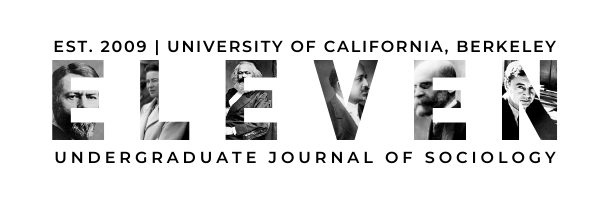Spotlights
From 2020 to 2021, our newsletter spotlighted distinguished faculty from the UC Berkeley Social Science departments. Check out what they’re passionate about, what they’re teaching, and more!
Carolyn Chen
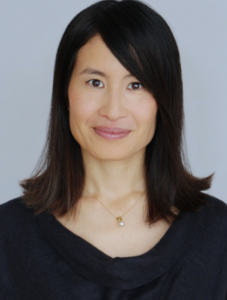
I am an Associate Professor in the Department of Ethnic Studies. I teach courses on religion, race and ethnicity, Asian American religion, contemporary issues in Asian American communities, and the second generation. As a sociologist of religion, my research focuses on two areas: religion, race, ethnicity and immigration, and the relationship between religion and work. I’ve published two books on the Asian-American religious experience. In my first book, Getting Saved in America: Taiwanese Immigration and Religious Experience (Princeton 2008), I address why Taiwanese immigrants convert to evangelical Christianity after migrating to the United States. Becoming more religious, or changing religions, is a pattern that we see among many immigrant groups, in the past and present. What is the function of religion for immigrants, I ask. Sustaining Faith Traditions: Religion, Race, and Ethnicity among the Latino and Asian American Second Generation (NYU 2012) is an anthology that looks at how the children of Latinx and Asian immigrants negotiate their religious, racial, and ethnic identities. Earlier theories of ethnicity, religion, and immigration were largely based on the experiences of white immigrants and their descendants. What is the relationship between religion and ethnicity now that most immigrants are non-white? Finally, my new book, Work Pray Code: When Work Becomes Religion in Silicon Valley (Princeton, forthcoming) looks at how Silicon Valley firms use Asian spiritual practices to make their workers more productive. Work, I argue, is replacing religion in the lives of high-skilled workers. The workplace, rather than churches and temples, are fulfilling their needs for identity, belonging, meaning, and spirituality.
Keith Feldman
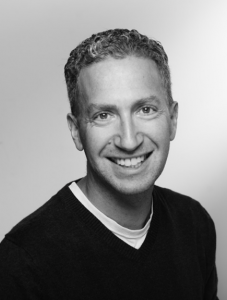
I am an Associate Professor and the current Head Graduate Advisor here in Ethnic Studies. I’ve taught at Berkeley since 2009. My research draws from U.S. cultural studies frameworks to explore the interface between race, knowledge, and state violence, with a focus on the long arc of entanglements between the US and West Asia. My first book, A Shadow over Palestine: The Imperial Life of Race in America, considered how a range of artists and writers linked the U.S. state’s combination of political inclusion and intensified projection of violence at home and abroad to shifting dynamics of rule in Israel and Palestine. In my new work, I explore representations of the body in the long war on terror, attending especially to the ways U.S. visual culture innovates, consolidates, and contests historical processes of racialization.I routinely teach or co-teach ES 11AC, our Introduction to Ethnic Studies. The course takes seriously the emergence, insights, and intersections of the fields of Black and African American Studies; Asian American and Asian Diaspora Studies; Native American and Indigenous Studies; and Chicanx/Latinx Studies. We take up the concept of race as a social construction, one that changes over time and place, and one that is intersected by various vectors of social difference. This serves as an entry point into pressing questions about capitalism and colonialism, indigeneity and immigration, empire and war, art and activism, gender and sexuality, the local and the global. It’s a real delight of a course to teach.
Leslie Salzinger
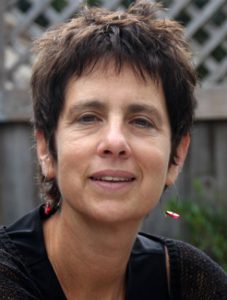
I am a sociologist teaching in the Department of Gender and Women’s Studies, and my research and teaching looks at the way that gender structures and is structured by capitalism. The class I’m most enjoying teaching right now is GWS/POLECON C138: Gender and Capitalism. The class looks at the ways that heterosexism, racism and capitalism shape and reinforce each other across time and traces the consequences for our lives today.
In my theoretical writing, I am investigating the ways that social reproduction is accomplished in contemporary capitalism, especially exploring how we might begin to conceive of a social world not organized around heteronormative family and capitalism. And in my ethnographic research on transnational finance, I look at men trading pesos for dollars in a major global bank in NY and Mexico City and analyze the ways that peso/dollar exchange markets function as crucial gendered and raced sites for Mexico’s shift from “developing nation” to “emerging market.” In that research, I focus especially on masculinity, as fuel and legitimating discourse in neoliberalism overall. Throughout my teaching and research, my goal is to help us to imagine ways of organizing the social world beyond the strictures of binary gender, mandatory heterosexuality, and private property.
David Harding
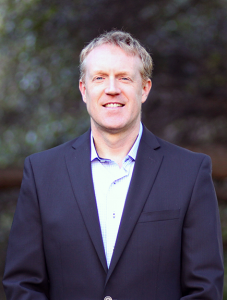
Professor David Harding is a professor of Sociology and the faculty director of the Social Science D-Lab, a center on campus that helps students, faculty, and staff use data science methods and tools in their research. Undergraduates are welcome to register for workshops on topics like qualitative methods, Python, R, Stata, text analysis, and machine learning. Professor Harding teaches SOC 88: Data Science for Social Impact. The course is a “connector” with Data 8 (Fundamentals of Data Science). It’s goal is to teach students who are currently taking Data 8 or who have taken it in the past how to communicate research results and data to policymakers, practitioners, and the general public to make social change. We learn about the various roles that research plays in policy making and public discourse, how to write policy briefs and op-eds, and how to make data visualizations in Python that effectively convey research findings. His own research aims to understand the causes and consequences of inequality, particularly the roles of schools, neighborhoods, and the criminal justice system. In his most recent book, After Prison: Navigating Adulthood in the Shadow of the Justice System, his co-authors and himself describe the challenges faced by young adults as they leave prison and attempt to reintegrate into families, communities, and the labor market while escaping the surveillance and punishment of the criminal justice system.
Andrew Barlow
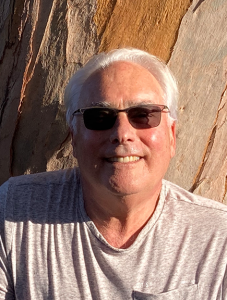
Professor Andrew Barlow is a lecturer in the Department of Sociology, where he has taught since 1986. He teaches the Sociology of Law (Soc.114), Deviance and Social Control (Soc. 152AC), Race and Ethnicity in the U.S. (Soc. 131AC), and Economic Sociology (Soc. 120).
His courses are inspired by and based on a commitment to social justice. Each course studies social processes of domination and control from the perspective of people who are oppressed by them. Each course examines strategies developed by marginalized people to resist domination and to advance social justice. In each course he utilizes a social justice pedagogy, one that centers the experiences of marginalized students and empowers students to be teachers as well as learners. His intention is for students to directly experience social justice in the classroom.
Professor Barlow’s classes are a reflection of my life-long commitment to social justice activism. He was a participant in the civil rights and anti-Vietnam War movement of the 1960s and 1970s and has continued his activism ever since. He has written two books intended to be contributions to social justice movements. The first, Between Fear and Hope: Globalization and Race in the United States described the ways in which the intersections of economic globalization and structural racism created fertile conditions for the rise of neo-liberal politics and culture in the 1990s and early 2000s, but also created new conditions for the rise of social movements challenging neo-liberalism. The second book, Collaborations for Social Justice: Professionals, Publics and Policy Change presents accounts of California-based activist educators, lawyers and health experts who do their work to empower marginalized communities.
Professor Barlow’s current work is on contemporary social movements’ understandings of social justice. He now teaches at UC Berkeley every other semester and spends part of the year in the American South. His next time teaching will be in Spring 2022.
Skylar Wang
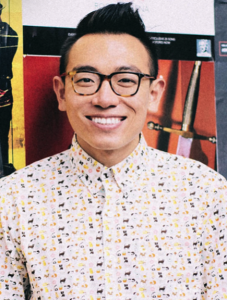
Skylar Wang is a Ph.D. Candidate in Sociology at UC Berkeley. In Spring 2021, Skylar will be teaching an advanced seminar (SOCIOL 190 005) called “What Makes Us Click”: Online Dating in the Age of Modern Romance. In this class, Skylar will apply sociological concepts to a topic deeply germane to the lives of many students. The primary goal of the seminar is to help students see cultural patterns and logics in a practice many perceive to be personal and to open up their eyes to the inequities that exist in the app-centric world that we all find ourselves in. One of the writing assignments consists of an exercise where students are tasked to analyze a dating app or website of their choice and identify features that could be improved, added, or removed. They will then write up a recommendation brief to the companies with evidence-based suggestions to argue for why the changes that advocate could make dating more equitable for users.
Skyler’s research is deeply informed by my teaching and vice-versa. The big question that drives their understanding in Sociology is how online technologies shape cultural schemas and interpersonal relationships. Currently, Skyler has two ongoing projects. The first looks at how people ‘share’ their bodies in the sharing economy. To answer this question, Skyler studies transactional sex that occurs on the hospitality-exchange network Couchsurfing.com. The second project investigates the various strategies singles today rely on to ascertain good romantic matches and make decisions around commitment while dating online.
Trina Thompson
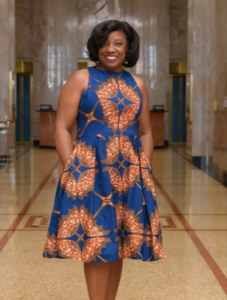
Implicit beliefs and bias direct our thoughts, actions and decisions constantly and in every aspect of our lives. What happens when these unconscious beliefs are based on broad stereotypes built into our social fabric, leading to incorrect assumptions and faulty decisions? How does this play out in the legal profession? What happens when judicial independence fails? The courses examine how implicit socioeconomic, racial, and ethnic based biases impact our systems of justice in the courtroom and beyond. The courses accomplish this through a historical study of the seminal cases that impacted and shaped our multi-ethnic community and shared history.
Minoo Moallem
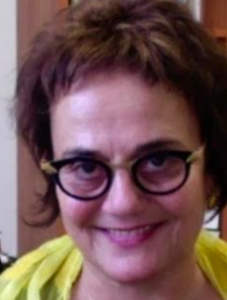
I am a diasporic feminist scholar working in interdisciplinary postcolonial and transnational cultural studies, social theory, Middle Eastern studies, and Iranian cultural politics and diaspora. I became invested in social movements and questions of social justice before pursuing a sociology degree.I am academically trained as a sociologist in four different countries: Iran, France, Canada, and the US, and in three languages. Sociology provided me with the epistemological and methodological concepts and tools to pursue my passion for working towards a more egalitarian society through education. I have written about issues of gender, race, nation, religion, and immigration by focusing on local, national, regional, and global relations of power. I have been among the very first Iranian scholars who embarked on the study of critical race theory, postcoloniality, immigration, diaspora, and digital humanities.I always bring the experience of my research and scholarship into the classroom. Many of my most innovative courses are based on my extensive research and scholarship. For example, I developed the first-ever feminist course in the Bay area, if not in the U.S., on “Women in the Muslim and Arab Worlds,” as early as 1994. I also developed several courses on issues of immigration and refugees, including a graduate course entitled, “Diaspora, Border, and Transnational Identities” at UC Berkeley. I believe in the interconnection between theory and practice and developed several praxis-oriented courses in gender and women’s studies, including a course on women, poverty, and globalization.I also offer a course entitled “Objects and Commodities,” based on my more recent work on Persian Carpets as transnational commodities. In this course, I teach students to not only learn about commodities as objects of inquiry, but also to interrogate their relationship to objects and to examine the connection between culture and economy, and the linkage between subject formation, consumerism, and environment. I learn greatly from my students and the experience of being in a classroom. I have used this knowledge to reflect on questions of pedagogy and the importance of interrogating the relations of power and the significance of affective flows in the classroom.
Eric Stanley
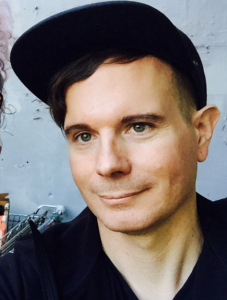
I’m an assistant professor in the Department of Gender and Women’s Studies and I’m also affiliated with the Haas LGBTQ Citizenship Research Cluster and the Program in Critical Theory. My research and teaching are concerned with radical trans/queer critique, anti-colonial feminisms, and critical theory. I’m currently completing my first manuscript Atmospheres of Violence: Trans/Queer Antagonism and the Ungovernable (forthcoming, Duke University Press). This book argues that racialized anti-trans/queer violence, including direct attacks, prisons, suicide, and HIV/AIDS, is foundational to, and not an aberration of, western modernity. I’m also working on two other projects, the first on nonsovereignty and the trans/queer people involved in Left insurgent underground activities in the 1970s and 1980s, and a new project on geographies of dislocation and trans resistance, focusing on the Bay Area. I’m currently teaching a course on queer visual cultures that is centered around the question: what are the promises and limits of representation? I also often teach GWS 20AC, which is an introduction to critical trans/queer politics in the United States. All of my classes are interdisciplinary investigations that use multiple methodologies. To this end, I look forward to working with students from the social sciences and beyond!
Neil Fligstein
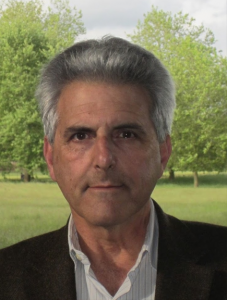
I am a Professor in the Department of Sociology at UC Berkeley. The main class I teach to undergraduates is Sociology 120, Economy and Society.The Class develops some of the tools of the new economic sociology. We consider how sociologists have thought of markets and how markets require states and institutions to make them operate. We then use these tools to consider the current situation in the United States. We discuss how shareholder value capitalism, which dominates the American economy, arose, and how it works. We consider its effects on how the financialization of the American economy has changed politics, corporations, work, and the income distribution. We then use the sociological perspective that we have developed around the construction of markets to consider the social structuring of the two most dynamic and innovative sectors of the American economy: finance and the companies that dominate the internet (Facebook, Apple, Amazon, Microsoft, and Google, colloquially called “FAAMG” by stock analysts, and the acronym sometimes adds Netflix and Uber to make it virtually unpronounceable). The last section of the class takes up the issue of globalization, neoliberalism, and global finance. Globalization refers to three things: the increase in global trade, the rise of the newly rich (or more precisely middle class) Asian economies, and the emergence of global finance. We consider the evolution of the global political, military, and economic governance and America’s place in that process. We consider the remarkable rise of China and its impact on that American created structure. President Trump has made trade one of his central issues. He argues that this system is no longer benefitting the U.S. We consider the ways in which he is right and wrong. We end by considering some future paths for American capitalism. My research has mostly been directly related to what I teach in the class. I have studied the rise of the large modern corporation, the creation of the European Union, and most recently the finance and the financial crisis. If you would like to see more of what I have done, see my website, https://sociology.berkeley.edu/faculty/neil-fligstein.
Edwin Lin
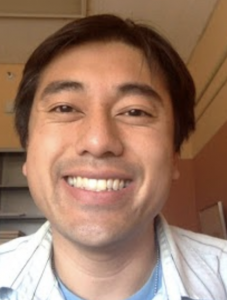
My previous research looked at Chinese shopkeeper migrants in South Africa, specifically how these migrants understood and thought about their movement as a way to improve their lives. Since then, I’ve mostly been devoted to teaching, especially creating course content about development, globalization, culture, immigration, social media, and virtual communities. I love these fields in part because they are so relevant and contemporary, dealing with theories, ideas, and topics that come up constantly in current events and in the real lives of our everyday experience. I love helping students make these connections, as I believe that not only is this the stuff that they will remember long after they graduate, but also it is the kind of skill that will help them in the future–to be able to connect theories and ideas to practice.Aside from these topics, I have also been busy teaching classes on different sociological methods around research. I love working with students on the process of building a methodological approach to answering interesting questions on understanding social phenomena. I have taught classes ranging from introduction to methods to advanced methodologies, from writing research to in-depth interviewing. All of these classes are a joy to teach as I get to work on a more seminar basis and meet students in office hours to talk through their research projects and ideas. I consider myself extremely fortunate to see my students go on to build these projects into honors theses, scholarship winning ideas, and even PhD projects.
Linus Huang
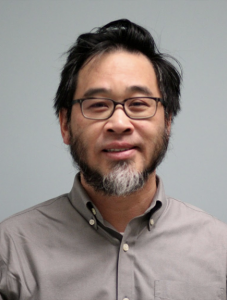
My current research is about a topic I have been interested in for a long time, but which I have been able to frame more sociologically thanks to my teaching activity. I am interested in the emergence of a “Moneyball” (or, “analytics”) culture in Major League Baseball front offices over the past two decades. From the perspective of a Sociology of Organizations (one of my regular courses), the emergence of this culture is a bit of a puzzle, since there had been an entrenched culture of shall we say non-Moneyball, “traditional” scouting for many years. What is called neo-institutionalist theory predicts that entrenched cultures usually don’t get displaced—even if a proposed innovation is arguably technically superior. So this has led to me to look for evidence that the legitimacy of traditional scouting was destabilized sometime in the 1980s or 1990s, creating an opportunity for an innovation like Moneyball that normally would have been rejected, to gain a foothold in baseball.In return, my research activity aids my teaching. Both by directly providing content, in the case of the Sociology of Sports course. But for my other courses as well, by helping me communicate the craft of “doing sociology” in a more organic fashion.
Meghna Mukherjee
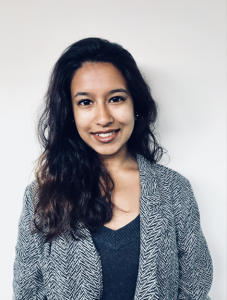
My main research questions interrogate the social inequalities arising alongside emerging fertility and genetic technologies. I am particularly interested in understanding how medicalized spaces are reinforcing harmful social hierarchies and reconstituting health and family-building. Most recently, my Master’s thesis explored a comparative analysis of egg donation practices between the Bay Area of the US and Kolkata, India, focusing on the medical management of donor-patient matching and resulting reimaginations of the egg that perpetuate inequality. While I always thought I would work in international relations or with non-profits, ultimately, I found that sociology points me to the central, root problems that I am interested in. It brings me closer to questioning inequalities in our daily lives, understanding how they are produced, and hopefully having a meaningful impact on changing those structures and practices. My field not only allows me to be creative and active in my on-the-ground research, but also gives me critical insight into how large institutions or seemingly intangible issues come into being and reproduce our social world. In addition, sociology, particularly at UC Berkeley, allows us to be involved in issues we are passionate about and participate in opportunities for real impact. For me, remaining engaged with the non-profit world is something I care deeply about, and it ensures that my research is committed to highlighting areas for change. Finally, it’s particularly rewarding to be a sociology PhD student at UC Berkeley surrounded by a supportive community of colleagues and caring advisors, all of who are so passionate about this work.
Robert Braun
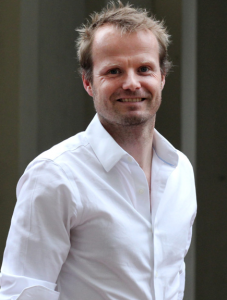
I am an Assistant Professor of Sociology at UC Berkeley where I teach Sociology 1. In this class I have the honor to introduce students to three sets of questions that, at least in my view, form the core of sociology. I refer to these questions as the 3Is:
1) How are groups created and how does membership to groups affect our behavior (identity)?
2) Which group gets what, when and most importantly why (inequality)?
3) How do different groups produce social order and solidarity (integration)?
Studying the 3Is reveals that behaviors that may at first seem like deeply personal choices or determined by nature -suicide, academic achievement, college major- are clearly affected by how we are raised and who we interact with. This in turn will help students to see society more clearly and, hopefully, with greater empathy for those who are different.My research forms a direct extension of my teaching. I study intergroup relationships in times of social upheaval (war, revolution, genocide. In my first book, I explain why some religious groups decide to shelter victims of mass persecution while others refrain from doing so (integration). The book shows that local religious minorities are more likely to save persecuted groups because their members empathize with targets of purification campaigns, imbuing their networks with preferences that lead them to resist genocide (identity). Hence it is the local position of nearby church communities that determines who survives persecution and who does not (inequality).
